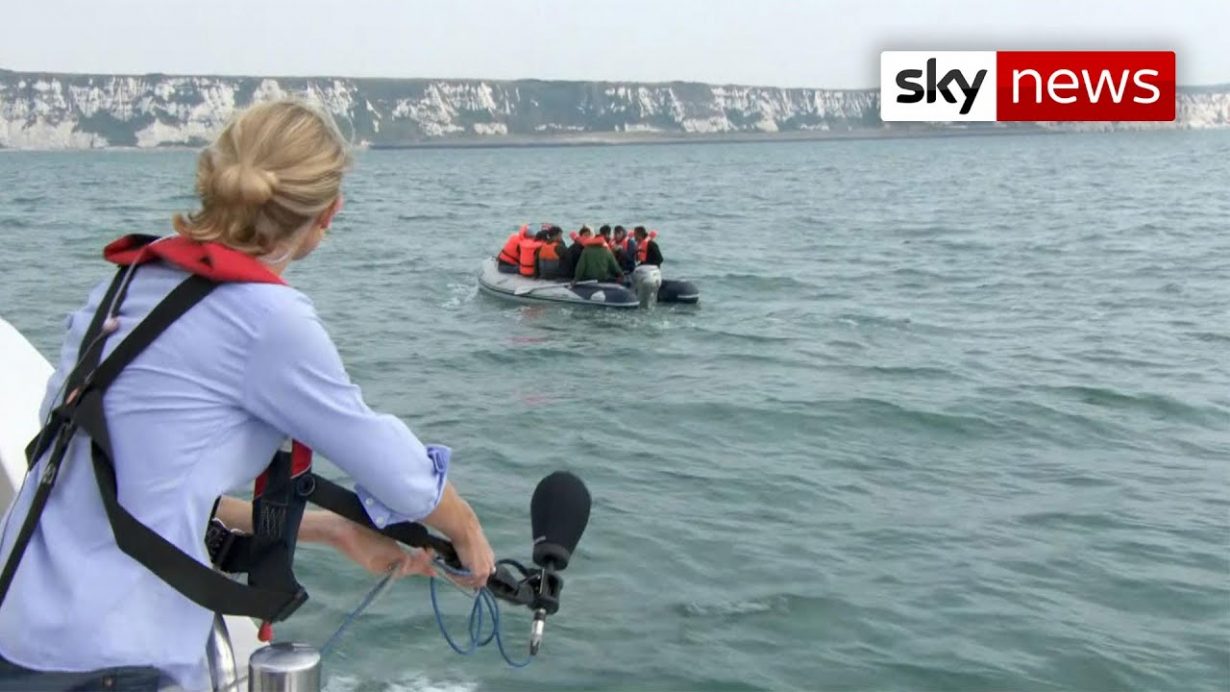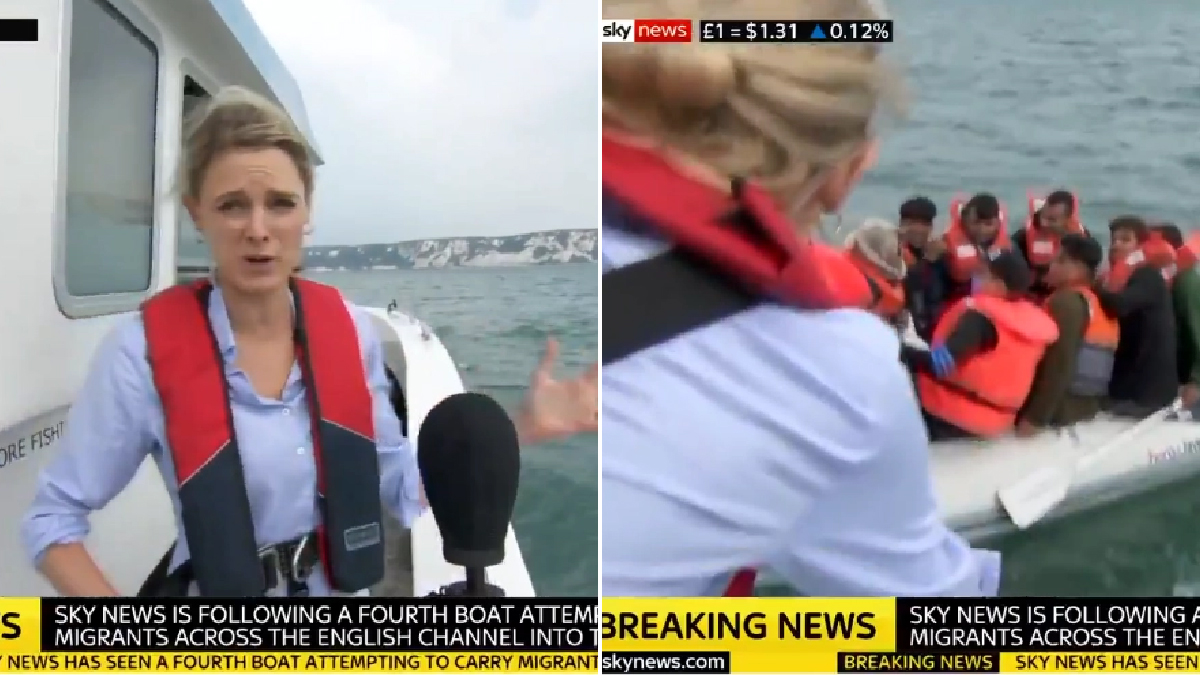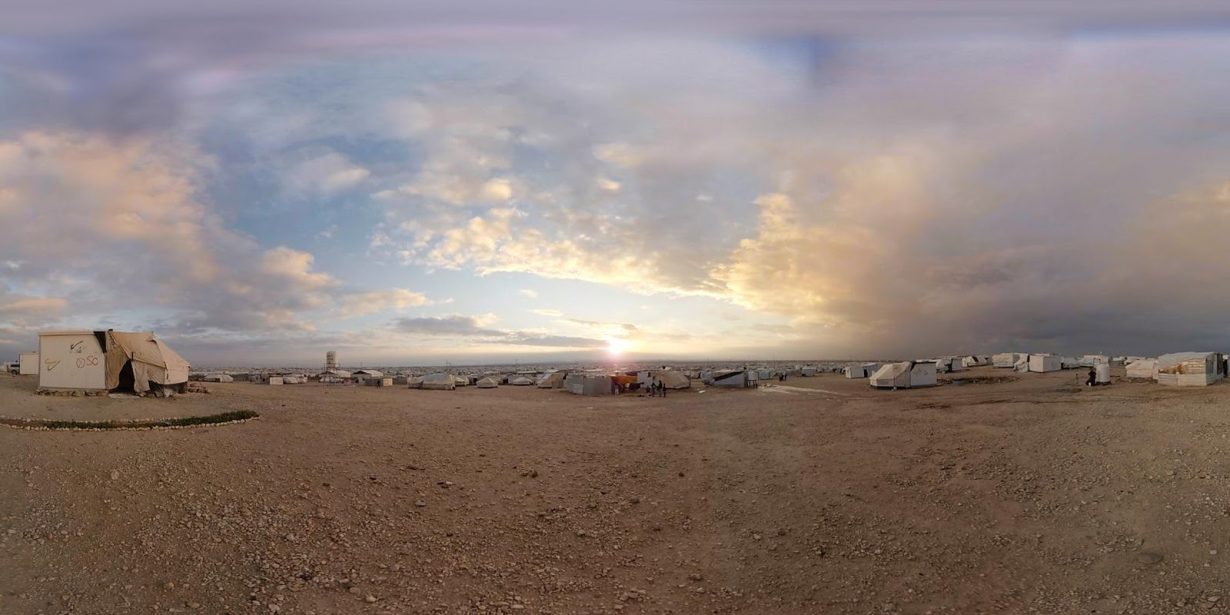What’s striking about recent reporting from the English channel is the naked power imbalance between subject and creator

On 10 August 2020, a BBC news team took to the English channel to film a group of refugees attempting to make it across the choppy waters. With cool (or perhaps callous) detachment, the presenter provided a running commentary as the over-crowded dinghy’s passengers decanted water using a plastic container. He shouted a series of questions, pointing his microphone in their direction, before relaying the information back to viewers, concluding ‘they seem to be safe at the moment.’ The journalist revealed how they tried to capture similar footage a few days prior, tracking another group of refugees whose engine failed as it neared Dover. Still, this was not a normal broadcast. It was refugee flight reframed as chilling reality television – an extra shot of drama for viewers sipping their morning coffee.
2020 has not exactly been short on devastating or apocalyptic imagery. A militarised police force and right-wing ‘patriot’ militia terrorise America’s streets; COVID-19 patients gasp for air in hospital wards; at the end of the UK’s recent extreme heat wave, lightning cracked through the sky with the full force of the four horsemen. And yet, in spite of such competition, the BBC report from the channel crossing felt unsettling, even as it was usurped the following day by a Sky News broadcast. Employing a bizarrely cheerful tone, the journalist shouted across the sea to another dinghy, only to be met with the justifiable appeal of ‘please, no camera.’ The wind billowed in the presenter’s hair, the boats appeared to be moving quicker, and the entire shot was deliberately framed by Dover’s white cliffs, an image long weaponised by right-wing, anti-immigration ideologues. The stakes felt higher; the tone manifestly dialed up.

What’s striking about the two live broadcasts is the near-total and naked power imbalance between subject and creator; two white journalists reporting from the safety of large boats, as the refugees squeeze into tiny dinghies. As viewers, we were told little of their backstories, or of the roiling politics that drove them into those boats – just that they were here, and in reportedly record numbers. These people, each with their own stories and agency were thoroughly ‘othered,’ presented as you might expect by broadcasters perhaps seeking to capitalise on the national mood (indeed, a YouGov survey showed nearly half of the British public expressing little or no sympathy for those seeking asylum across the Dover Straits). The disaster, it turns out, was not the one faced by desperate migrants, nor the Sudanese refugee whose body washed up on Sangatte beach last Wednesday – but the UK as a whole, a sentiment relayed precisely in the language of UK prime minister Boris Johnson, who described the crossings as ‘very bad’ and ‘criminal’.
These reality-TV-inflected news reports – nonconsensual, voyeuristic, ostensibly dispassionate, but certainly not apolitical – are a far cry from media which attempt to engage positively but no less problematically with refugees. Clouds Over Sidra (2015) is a virtual reality film intended to ‘generate greater empathy’ for the Syrian refugee crisis created by Gabo Arora and Chris Milk, in partnership with the UN and Samsung. By presenting a refugee’s perspective at Jordan’s Za’atri Camp in supposedly immersive 360-degree video, the VR film (and many others which come with the promise of ‘empathy’) positioned itself as a technological hack; a tool to experience without directly experiencing lives of often unbearable difficulty. The same rationale courses through Ai Weiwei’s 2017 documentary Human Flow, except it’s not just the film that is a vessel for empathy but the Chinese artist himself (who occupies an outsized and jarring presence in the film’s final cut).

Weirder still is the Australian reality TV show Go Back To Where You Came From (2011-2018), which attempted to place a cohort of non-refugee participants into the shoes of refugees. At one point, the first season asked the group to sail on a boat with limited food rations and no real idea of where they were travelling to. The show is at once surreal, wince-inducing, and, sometimes, revelatory. But the camera is far more focused on the redemptive citizens than the country’s own harsh governmental policies, or even necessarily the refugees themselves. Like Clouds Over Sidra, its first season feels like an opportunity for viewers to contend with their own guilt and shame (this time, channeled through the show’s contestants rather than a VR headset) – another opportunity to ‘do good’ simply by looking, rather than substantive action.
Nonetheless, even these piecemeal enquiries contain none of the barbed flippancy which make the UK’s recent news reports so disheartening. This in itself feels symptomatic of how far the argument has drifted rightwards. The isolationist, reactionary, and racist arguments that Clouds Over Sidra and Human Flow were working to counteract (however clumsily) have been thoroughly subsumed (and normalised) within mainstream discourse over the past five years. As viewers at home chow down on their breakfast cereal, the plight of those fleeing danger and persecution is now dished up as the ultimate life-and-death spectacle.